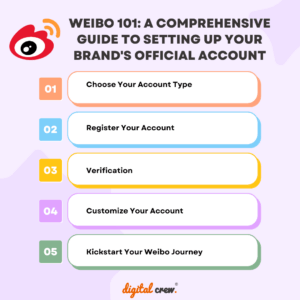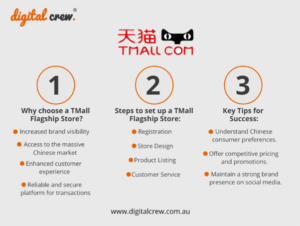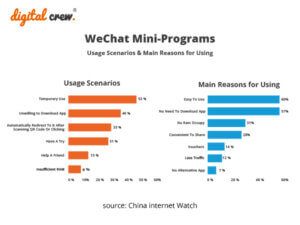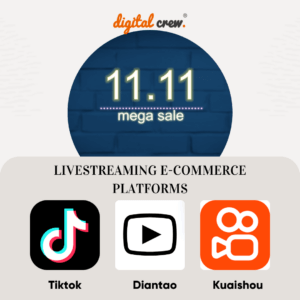
We recently wrote a guide to WeChat Minishop (小商店), an official miniprogram developed by Tencent to help brands and retailers build virtual shops on WeChat. As WeChat is still beta testing the feature, only a handful of WeChat official public account users have been invited to set up a minishop. In addition, retailers must meet a number of criteria in order to be qualified for running a WeChat minishop.
Besides WeChat minishop, there are different options to sell your products through WeChat. In this article, we will explain two popular ways to set up a virtual store on WeChat along with the pros and cons of each approach.
Youzan (有赞), top third-party e-commerce solution for WeChat
There are many other platforms in China that offer e-commerce development services similar to Weidian. One of the most popular third-party tools is by Youzan, a Hangzhou-based company that provides a Software-as-a-Service (SaaS) solution to set up a virtual store on WeChat. Over 400 million stores on WeChat are built with Youzan . In 2019, Youzan achieved a Gross Merchandise Volume (GMV) of 64.5 billion RMB, with a year-to-year increase of 95%.
Retailers can set up, operate, manage, and promote their WeChat stores through Youzan’s website or its app. Compared to Weidian, Youzan offers more features and templates for vendors, which gives them more freedom to customize their online presence on WeChat (and other platforms Youzan supports). Youzan is used by international brands such as DELL, ASUS and top social media influencers such as Becky Li and Zhang Dayi.



Through Becky Li’s WeChat store, users can shop for fashion items designed or recommended by Becky Li on her official WeChat account. The Youzan-developed e-commerce miniprogram provides users easy access to order management, address management, shipment tracking, and customer services.
While most Youzan stores share similar interfaces, some do have more advanced features and customized navigation menus. For instance, Zhang Dayi’s Youzan store on WeChat functions very similar to a Taobao store. When users enter the store, they will receive promotion pop-ups or event alerts. Users can also clip a coupon, start a group purchase, or enter for a lottery draw all within the store.


Pros: Youzan offers thousands of e-commerce features for businesses to integrate into their online stores. The company offers almost daily updates and add-ons that are designed according to the latest marketing trends on social media. The setup process is smooth, straightforward, and fairly easy. Business hoping to try out the Youzan tool can go to Youzan’s website, pick a pre-defined store category (general store, retails, beauty, education, restaurants), provide contact information and basic store information (location and name) to get a free trial.

According to a tech review, Youzan’s backend service is fast and stable, supporting the handling of 60,000 orders per second.
Cons: Its service fee is at the higher end, which starts from RMB 6,800 a year. Youzan justifies its pricing by offering a wide range of services to clients. They include not only e-commerce features such as online order management, payment and refunds, group-buying options, cashback events but also marketing tools such as promotions on WeChat public accounts and cross-platform presences on Weibo and Alipay.
While the features are versatile, they are not too different from existing e-commerce platforms such as Taobao or JD.com. Small businesses and individual retailers, especially those without a significant presence on WeChat, should do a cost-benefit analysis before investing in Youzan.
Eligibility: Youzan store is open to all business inside mainland China with a business license. International companies with a business license in a number of countries and regions (see screenshot below) are also eligible to set up an account on Youzan.

Setting up your store through Weidian (微店)
Weidian, which means “micro store”, is a Beijing-based company that offers free or paid services and miniprogram templates for vendors to set up a virtual store on WeChat. Although its name sounds similar to Weixin (WeChat’s Chinese name), Weidian is not developed or operated by Tencent (though Tencent has invested in the company). Rather, it is an e-commerce tool that allows retailers and brands to create a store on WeChat — similar to a Taobao or Shopify store — with existing templates in just a few clicks.
With over 80 million stores on its platform, Weidian’s simplistic design makes it very popular. Weidian is easily accessible on WeChat and uses convenient payment methods such as Wechat Pay, Alipay and Union pay.

As you can see from the screenshots, all e-commerce miniprograms powered by Weidian have similar displays and functions including a DIY homepage of the store, a product categorization page that allows users to better browse for different items, a shopping cart for users to add, edit, and remove items and check out, and a “My Account” page that helps users manage their orders and communicate with retailers for questions or customer service requests.


Pros: You can opt for a free version with limited features or a 7-day free trial period for the paid version. Both versions offer typical e-commerce features including store templates, product display, and online transaction management. The paid version, priced at RMB 4,200 a year, includes additional features such as store membership, coupons, live-streaming on Tencent products, cross-store managements (i.e., copy the items on display to multiple Weidian stores so that you don’t need to duplicate the work) and so on.
Weidian is very easy to use with little to no development expertise needed. In addition to WeChat miniprograms, Weidian has its own application and also supports other platforms, which can potentially expose your business to a wider range of audiences beyond WeChat users. Weidian also offers a paid customized e-commerce solution for your business.

Cons: A majority of Weidian stores are operated by individual retailers and small business owners rather than well-known brands. A report suggests that users generally have lower trust in the authenticity and quality of products on Weidian stores than on Youzan stores. The range of store and products categories pre-defined on Weidian is relatively limited.
Eligibility: Like WeChat minishop, both Weidian and Youzan require various identifications from vendors before setting up their stores. These identifications include business license, bank account information, and phone number, but the specific requirements varies between companies. As of January 2020, Weidian only supports China-based companies to set up stores.
| Features / Tool | WeChat Minishop | Youzan | Weidian |
| Basic e-commerce functions (e.g., product display, store template, order management) | Yes | Yes | Yes |
| Easy Setup (no coding development needed) | Yes | Yes | Yes |
| In-store promotional events (e.g., membership, cashback, coupons) | Yes | Yes | Yes |
| E-commerce live-streaming in WeChat or Tencent products | Yes | No | Yes |
| Cross-platform presence (e.g., stores on Weibo) | No | Yes | No |
| Fee | No | RMB 6,800+ / year | Most features only accessible through paid version (RMB 4,200 / year) |
| Support foreign companies | No | Partially | No |








































































